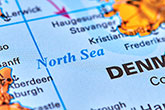Trigon Pacific Terminals and South Korea's Ulsan Free Economic Zone Authority sign MoU for collaboration on hydrogen-as-ammonia project development
Published by Emilie Grant,
Assistant Editor
Tanks and Terminals,
Trigon Pacific Terminals Ltd (Trigon) have signed a Memorandum of Understanding (MoU) with the Ulsan Free Economic Zone Authority (UFEZ) that will see the two entities establish a framework to expand collaboration on the development of hydrogen-as-ammonia exports from Canada to South Korea.
Throughout the MoU, Trigon will support the development of receiving terminals in Ulsan, South Korea as a key component of the supply chain into the Asian markets and will also assist in opening up potential markets for Canadian products.
"Trigon has been actively advancing development of a Canadian west coast export corridor for the shipment of hydrogen-as-ammonia from Canada to global markets. The MoU with UFEZ further strengthens the strong ties between our two nations and our organisations," said Rob Booker, CEO of Trigon Pacific Terminals.
Trigon is ideally located between Western Canadian producers and Asia-Pacific customers and aims to become Canada's west coast export hub.
"We are grateful for the opportunity to collaborate with UFEZ with the aim for Canada to be a supplier of choice and we look forward to ongoing and productive cooperation with the esteemed UFEZ team," added Mr. Booker.
Read the article online at: https://www.tanksterminals.com/terminals/17022025/trigon-pacific-terminals-and-south-koreas-ulsan-free-economic-zone-authority-sign-mou-for-collaboration-on-hydrogen-as-ammonia-project-development/
You might also like
Hydrocarbon Engineering Podcast
Peter Davidson, CEO of the Tank Storage Association (TSA), joins us to discuss the essential role that the tank storage sector has to play in ensuring supply security and resilience, as well as in facilitating the energy transition.
LBC, ABP, and North Sea Port partner to advance carbon shipping in the North Sea
LBC, Associated British Ports, and North Sea Port have signed an MoU to develop a CCS terminal and shipping corridor connecting Northwest Europe with the UK.


